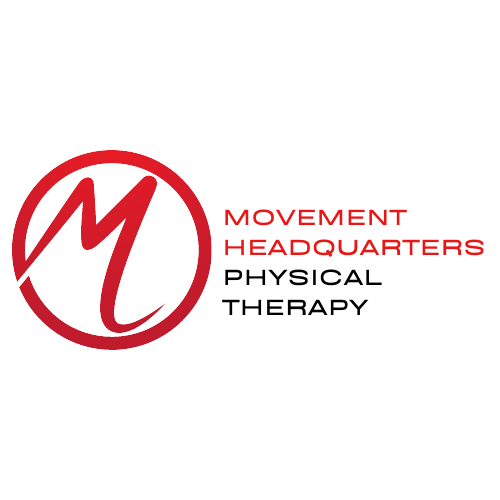The CrossFit Open is a highly anticipated event that brings together athletes from around the globe to test their strength, endurance, and mental fortitude. Whether you're a seasoned competitor or a first-time participant, the intensity of the Open can be overwhelming. With the pressure to perform at your best, it’s easy to overlook one of the most crucial aspects of athletic performance: recovery. And when it comes to recovery, sleep is a key player.
In this blog post, we'll explore why sleep and recovery are critical to CrossFit athletes during the Open and offer practical strategies for optimizing rest so that you can perform at your peak.
1. Sleep: The Ultimate Recovery Tool
Sleep is often referred to as the "secret weapon" for athletes. It's during sleep that the body undergoes crucial repair processes, regenerating muscles, restoring energy levels, and balancing hormones. When you push your body through high-intensity workouts like those in the CrossFit Open, recovery becomes even more important.
Here’s why sleep is so vital for CrossFit athletes during this time:
a. Muscle Repair and Growth
Intense CrossFit workouts—whether it's heavy lifting, high-intensity interval training, or gymnastics movements—put a tremendous strain on muscles. Sleep allows the body to repair these muscles and rebuild them stronger. During deep sleep (also known as slow-wave sleep), the body releases growth hormone, which aids in muscle recovery and repair.
b. Restoring Energy
The CrossFit Open demands significant energy expenditure, which can lead to fatigue and depleted energy stores. Sleep replenishes glycogen levels (the body’s primary energy source), ensuring that you’re ready for the next workout.
c. Cognitive Recovery
CrossFit isn’t just a test of physical strength; it’s a mental challenge too. Sleep supports cognitive function, improving focus, decision-making, and reaction time—all of which are crucial for performing complex movements under pressure. Lack of sleep can impair your mental sharpness, leading to mistakes or missed opportunities during a workout.
d. Immune System Support
The stress of intense training and competition can take a toll on your immune system, leaving you more susceptible to illness. Sleep is one of the best ways to strengthen your immune system, reducing the likelihood of getting sick during the Open.
2. The Impact of Sleep Deprivation on Performance
It’s easy to think that sacrificing a little sleep to get in extra training or to work on your weaknesses will give you an edge. However, sleep deprivation has serious consequences, especially during a high-stakes event like the Open.
Here’s what happens when you skimp on sleep:
Reduced Physical Performance: A lack of sleep impairs physical performance, reducing strength, endurance, and reaction time. You may feel sluggish, weak, or slower than usual, which can make a significant difference when every second counts.
Increased Risk of Injury: Without enough rest, your muscles and joints don’t have the chance to recover fully. This increases your risk of overuse injuries, strains, and sprains, especially during repetitive or high-intensity movements.
Decreased Motivation and Mental Focus: Sleep deprivation can also affect your mindset, leading to decreased motivation, difficulty concentrating, and even increased levels of stress and anxiety. Staying mentally sharp and resilient is crucial during the Open.
3. Optimizing Sleep and Recovery During the CrossFit Open
So, how can you ensure you're getting the rest you need while balancing the demands of training and competition? Here are some practical strategies:
a. Prioritize Quality Sleep
Aim for 7-9 hours of sleep each night, as this is the optimal range for most athletes. Quality sleep is just as important as quantity, so focus on creating a sleep-friendly environment. Keep your room cool, dark, and quiet, and avoid screens (phones, TVs, etc.) at least an hour before bedtime.
b. Adopt a Sleep Routine
Consistency is key. Try to go to bed and wake up at the same time each day to regulate your body's internal clock. A consistent sleep schedule helps improve sleep quality and makes it easier to fall asleep when you need it the most.
c. Incorporate Active Recovery Days
During the Open, you might be tempted to push yourself hard every day, but recovery isn’t just about sleep—it also involves giving your body time to heal. Incorporate active recovery sessions (like light stretching, yoga, or walking) to reduce muscle soreness and improve mobility.
d. Use Recovery Tools
Consider incorporating tools like foam rollers, massage guns, or even cryotherapy to aid recovery. These tools can help reduce muscle tension and inflammation, promoting quicker recovery between workouts. Also, remember to hydrate properly, as dehydration can hinder muscle repair and recovery.
e. Manage Stress and Mental Fatigue
Stress and anxiety can also interfere with sleep. Practices like meditation, deep breathing exercises, or journaling can help manage mental fatigue and promote relaxation. A calm mind leads to better sleep quality, which in turn improves physical recovery.
4. Listen to Your Body
The Open is a unique challenge, and it's important to recognize when your body needs rest. If you’re feeling excessively fatigued or sore, it’s okay to scale back on training or take an extra rest day. Pushing through pain or extreme exhaustion will only hinder your performance in the long run.
Conclusion
The CrossFit Open is a test of your fitness, but it’s also a test of your ability to recover and perform under pressure. Sleep and recovery are not just "nice-to-haves" during this period—they’re vital components of your performance strategy. By prioritizing sleep, managing recovery, and listening to your body, you’ll be in the best possible position to maximize your potential during the Open. So, while everyone else may be burning the candle at both ends, remember that the road to success in the Open starts with rest.
Sleep well, recover hard, and perform your best!
